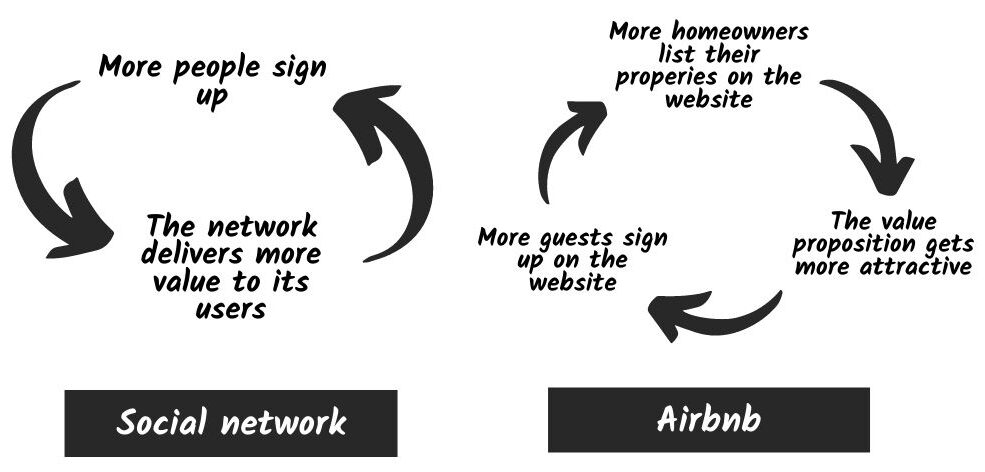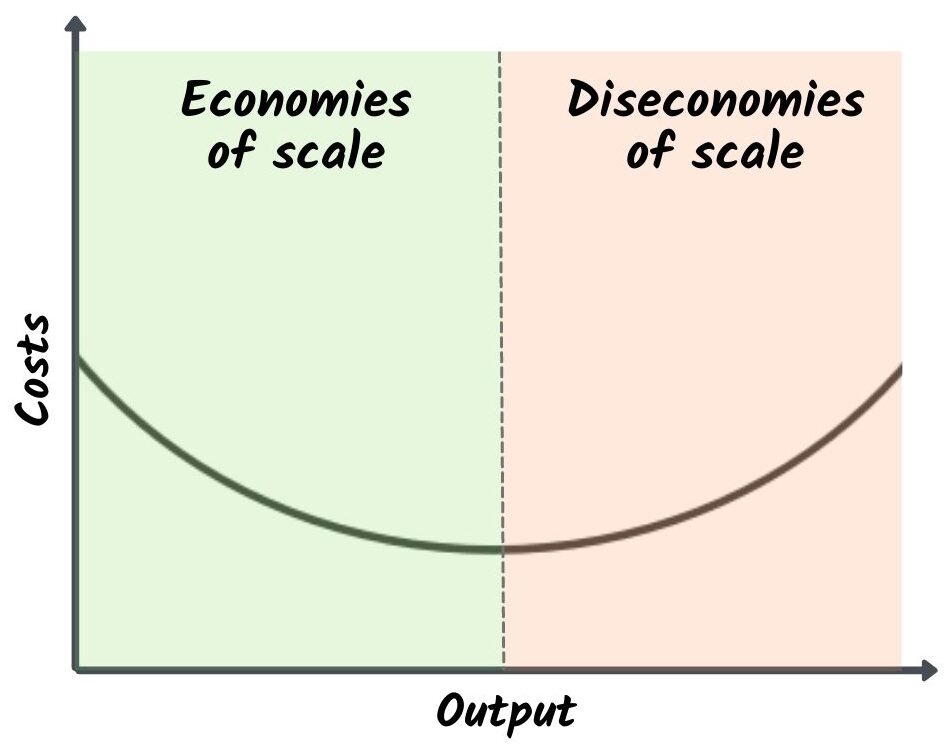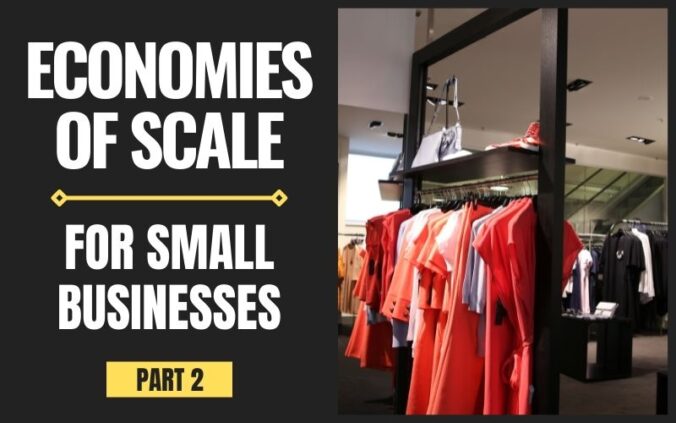In the last article, we looked at how small businesses can take advantage of commercial, technical, and marketing economies of scale. But there are two more types of economies of scale that I’d like to talk about: network and managerial. Let’s see what small businesses can do to exploit these.
Network economies of scale
Network economies of scales are achieved when the cost of adding new customers decreases. A good example of network effects is social media. The value of a new social media platform increases with the number of people using it. When a platform is new, you don’t want to use it, because your friends and favorite influencers are not using it; what’s the point of signing up to an empty network? The company will need to spend a lot on marketing to get the first people to sign up on their platform. Then, once enough people have joined, their friends and family will follow, word of mouth will spread, and the cost of getting new users decreases.

It’s the same thing with a service like Airbnb, no one would use it if there were only a few apartments available. That is why the company had to spend a lot of money to get the first homeowners to sign up and saw their marketing expenses decrease once there were enough properties listed. The increasing amounts of apartments listed attracted people wanting to rent short-term, which attracted even more homeowners.
Network economies of scale also apply to physical products and the distributions of these products. A retail store in a prime location is expensive, and the space is limited. In order to welcome more customers, expanding the store or relocating to a bigger place is very expensive. This makes it difficult, especially for small businesses, to expand and secure the best locations. Fortunately, there is a great way to scale your business, and make the cost of getting new customers very low: selling online! Although having a website that can support tens of thousands of daily customers will be more expensive than a store that sees a few dozen customers a day, there will be almost no difference in the cost per customer. Advertising channels, marketplaces, and 3PL platforms make it very easy to scale an online business.
Managerial economies of scale
Managerial economies of scale occur when a company hires skilled workers, experts in their field, and accomplished managers. They are able to perform tasks more effectively and be more productive. If I had a small business and had to perform important accounting tasks myself, it would be a nightmare! I would take forever to do it, and would certainly make many costly mistakes. Working with an expert would allow me to sleep better at night, knowing that they would do a much better job. As you know, hiring experts can be expensive, and small businesses don’t have the luxury to hire all the workers they need.
Does that mean that small businesses are always at a disadvantage here? Yes and no. Sure, small companies with no outside investors cannot afford to hire hundreds of specialized employees and managers. But do you really have to hire people full-time? If you only need a logo for your brand, and the only graphic design tool you can use is MS Paint, what would you do? Hire a graphic designer to work for you 40 hours a week, or hire them only for this one project?
I recently wrote an article about freelance marketplaces. There are now tons of ways to hire skilled workers for specific tasks at a reasonable cost. You can hire all types of experts, from data scientists to copywriters, on a project-by-project basis. You can outsource several parts of your business until your company is big enough to do it in-house. For example, if you run an online store, you might reach a point where you don’t have time to pack and ship products yourself, but you can’t yet build your own warehouse and hire workers. A solution would be to work with a 3PL company that would provide storage and fulfillment services; this way, you would only pay for what you need and you would save time so you can focus on other areas of your business.
The second thing is, having more employees and managers does not always mean the business functions better. As you know, economies of scale turn into diseconomies of scale past a certain point.

I once worked for a huge company in the public sector with thousands of employees. The company had hundreds of unionized senior employees who could not be laid off, and half of the workforce was either a manager or a director. Every single decision required approval from a bunch of different people in different departments, and processes were extremely slow. That company was way past the point of losing money and efficiency due to managerial diseconomies of scale. Small businesses are often faster and more flexible, which is a big advantage.
Conclusion
Although large businesses can take advantage of their size in order to generate economies of scale, smaller businesses also have ways to save money and be more efficient. They can’t just imitate their larger counterparts, and will have to use different tactics, but can definitely find good options.

